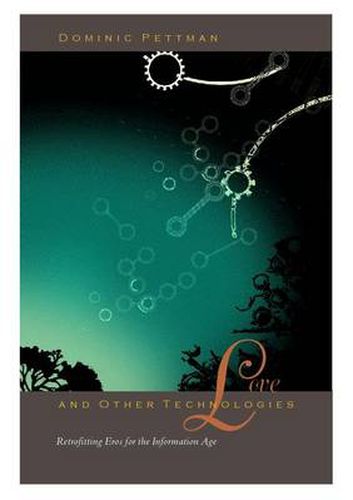Readings Newsletter
Become a Readings Member to make your shopping experience even easier.
Sign in or sign up for free!
You’re not far away from qualifying for FREE standard shipping within Australia
You’ve qualified for FREE standard shipping within Australia
The cart is loading…






Can love really be considered another form of technology?
Dominic Pettman says it can-although not before carefully redefining technology as a cultural challenge to what we mean by the human in the information age. Using the writings of such important thinkers as Giorgio Agamben, Jean-Luc Nancy, and Bernard Stiegler as a springboard, Pettman explores the techtonic movements of contemporary culture, specifically in relation to the language of eros. Highly ritualized expressions of desire-love, in other words-always reveal an era’s attitude toward what it means to exist as a self among others. For Pettman, the articulation of love is a technique of belonging: a way of responding to the basic plurality of everyone’s identity, a process that becomes increasingly complex as the forms of mediated communication, from cell phone and text messaging to the mass media, multiply and mesh together.
Wresting the idea of love from the arthritic hands of Romanticism, Pettman demonstrates the ways in which this dynamic assemblage- the stirrings of the soul -have always been a matter of tools, devices, prosthetics, and media. Love is, after all, something we make. And, love, this book argues, is not eternal, but external.
$9.00 standard shipping within Australia
FREE standard shipping within Australia for orders over $100.00
Express & International shipping calculated at checkout
Can love really be considered another form of technology?
Dominic Pettman says it can-although not before carefully redefining technology as a cultural challenge to what we mean by the human in the information age. Using the writings of such important thinkers as Giorgio Agamben, Jean-Luc Nancy, and Bernard Stiegler as a springboard, Pettman explores the techtonic movements of contemporary culture, specifically in relation to the language of eros. Highly ritualized expressions of desire-love, in other words-always reveal an era’s attitude toward what it means to exist as a self among others. For Pettman, the articulation of love is a technique of belonging: a way of responding to the basic plurality of everyone’s identity, a process that becomes increasingly complex as the forms of mediated communication, from cell phone and text messaging to the mass media, multiply and mesh together.
Wresting the idea of love from the arthritic hands of Romanticism, Pettman demonstrates the ways in which this dynamic assemblage- the stirrings of the soul -have always been a matter of tools, devices, prosthetics, and media. Love is, after all, something we make. And, love, this book argues, is not eternal, but external.